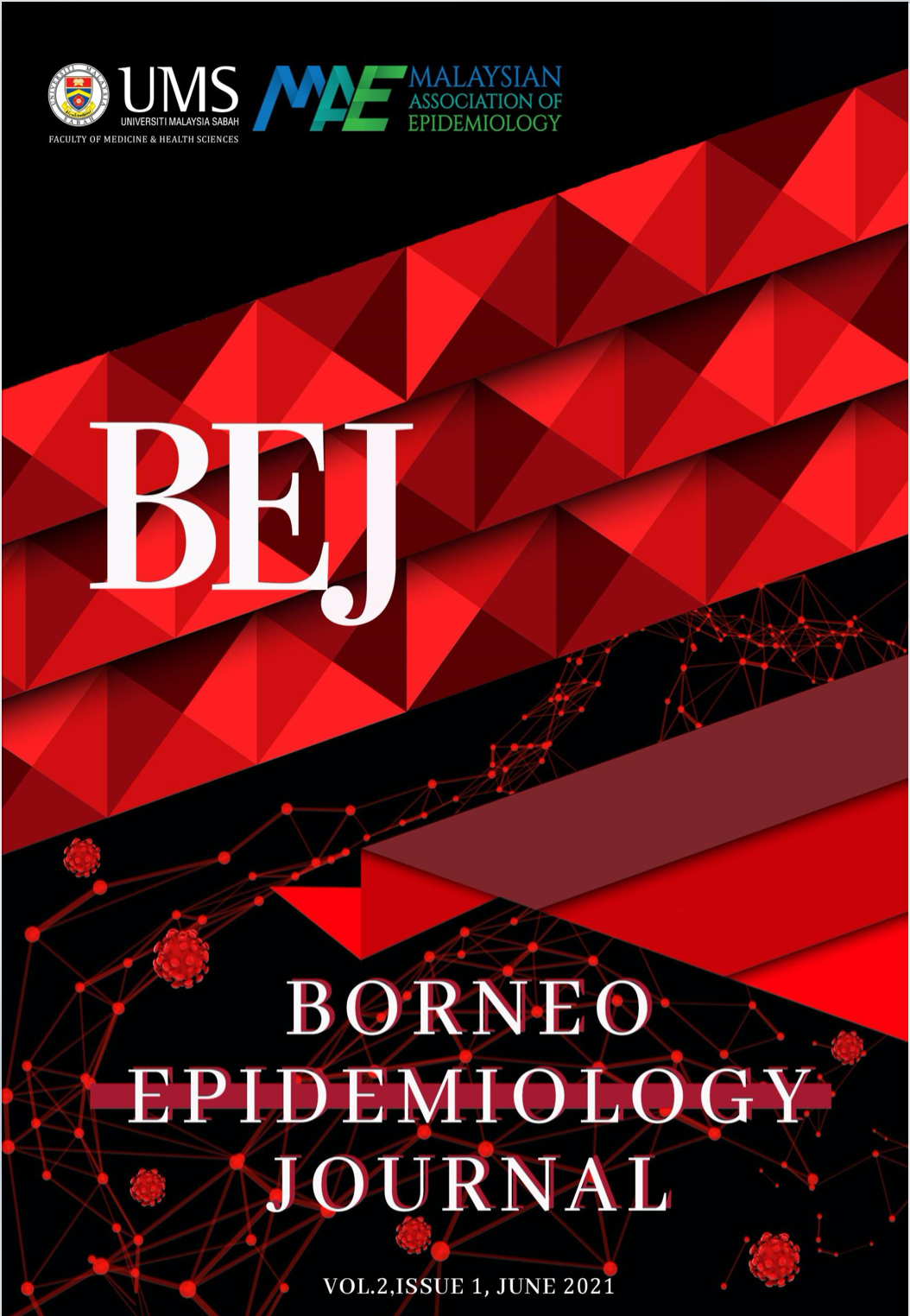Dengue Outbreak Management - Field Experience in Managing Dengue Involving an Urban Residential Area in Kota Kinabalu, Sabah Malaysia
DOI:
https://doi.org/10.51200/bej.v2i1.3240Keywords:
Dengue fever, Urban Residential Area, Kota Kinabalu, Vector control database, Breeding sitesAbstract
Introduction: Dengue fever is endemic in Malaysia. It is a major public health challenge that has caused significant morbidity and mortality. A dengue outbreak is contributed by entomological factors, epidemiological and environmental factors. Outbreak response is crucial to reduce cases and death. This study is a descriptive dengue outbreak report in an urban residential area in Kota Kinabalu, Sabah Malaysia.
Methods: This is a report of a dengue outbreak that started in middle of November 2019 and ended early December 2019. A dengue outbreak in Malaysia is defined when more than one dengue cases is reported in the same locality within 14 days from the date of notification of the first case. Cases were analysed descriptively looking at epidemiology and vector control database.
Results: This outbreak involved 6 cases. The source reduction activities by elimination of breeding sites were conducted 3 times covering an area of 200 meter radius. A total of 110 premises were checked with coverage of 86%. The number of containers inspected was 923, with 454 outside the premises and 469 inside the premises with no positive results for dengue larvae. Insecticide space spraying via thermal fogging was conducted with added ultra-low volume (ULV) spraying done within the 400 meter radius with coverage of 100%.
Conclusion: Effective preventive measures have to be paired with responsible communities, as both play very vital roles in the control of dengue.









